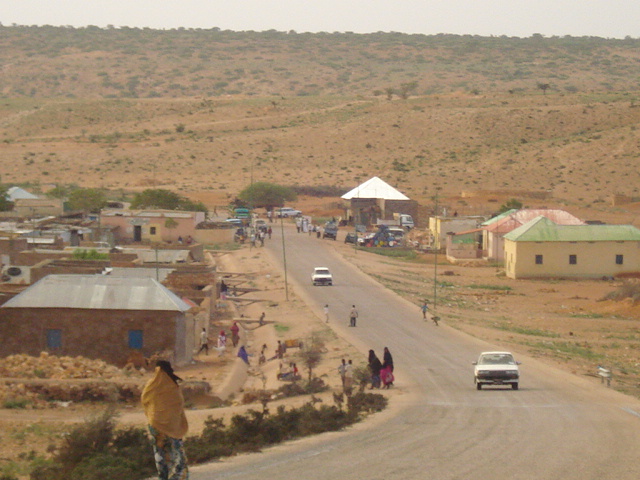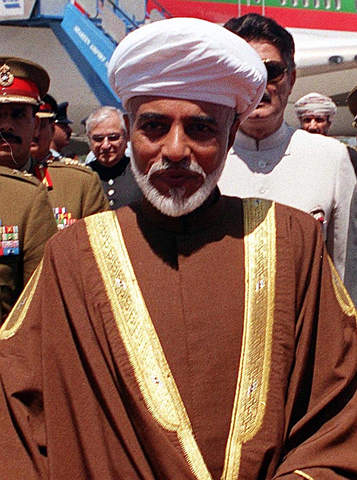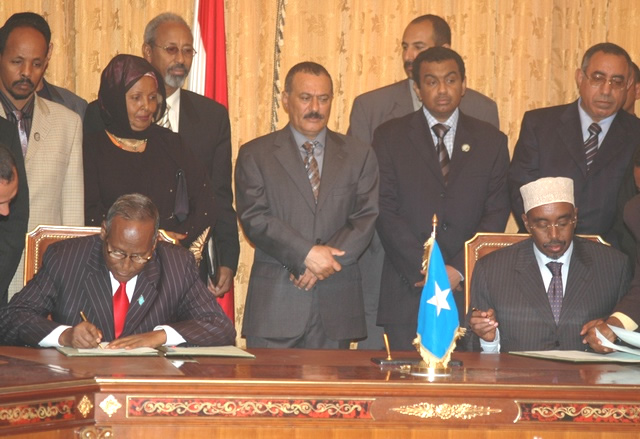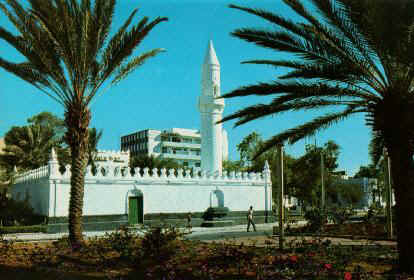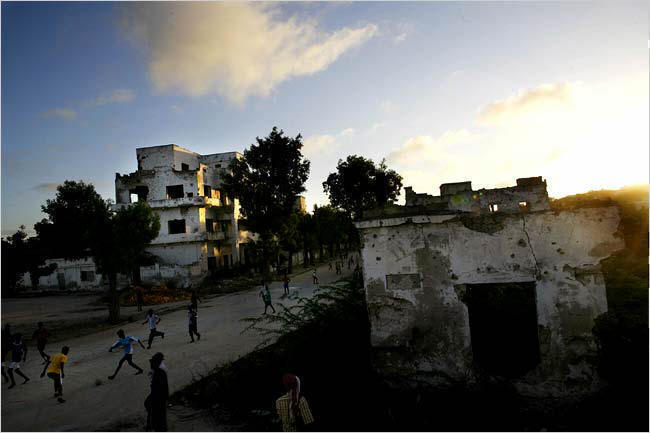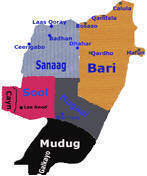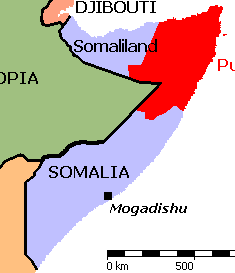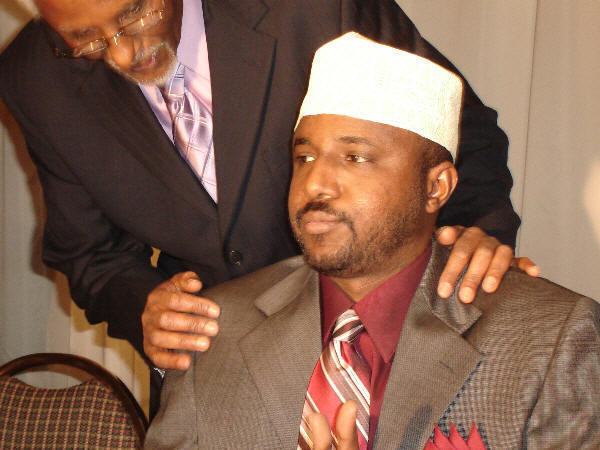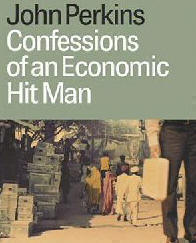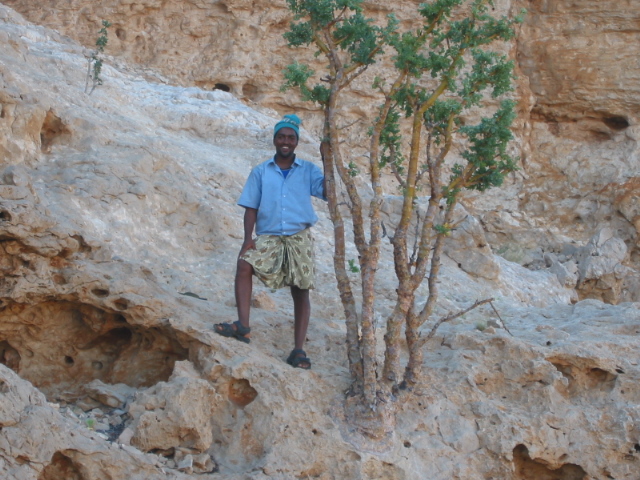
Parliament Plagued by Bickering
Biyokulule Online
December 23, 2011
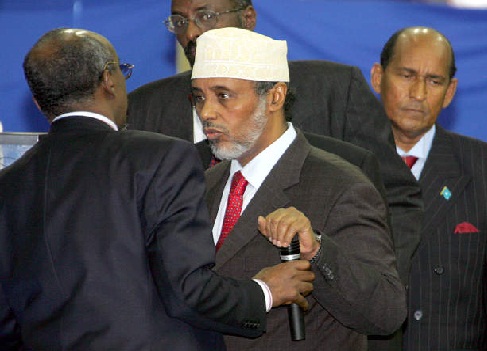
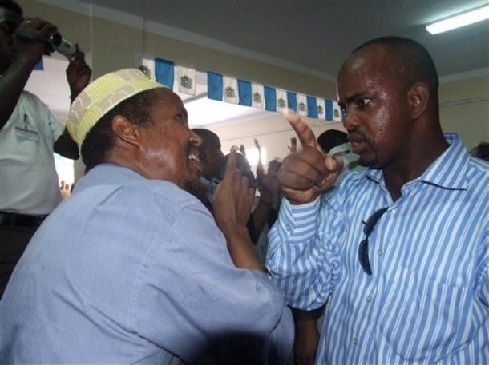
Two Somali MPs get into argument during a session in which they protested against Sheik Adan Mohamed, the speaker of the parliament whom they accused of power manipulation, in
A parliament riven by bickering, clan factionalism, and pointless squabbling over who holds what post have long dominated (and often times frustrated) the Somali Transitional Federal Government`s political process.
The current members of parliament (MPs) � most of them semiliterate and warlords � are holding their seats in Somalia`s National Assembly since 2004, without being elected directly by the people they claim to represent.
Thanks to the �godfather� role of the United Nations Political Office for Somalia (UNPOS) on the whole Somalia`s transitional governments. Since the formation of TFG in October 2004, UNPOS succeeded to install a government of their own choice in Mogadishu; and this approach have already torpedoed everything about the reconciliation efforts and the rebuilding the state institutions and consolidating stability in Somalia.
For the last eight years, we have seen Somali lawmakers leaping out of their chairs and rushing towards each other to physically attack one another. We have also watched on television screens, lawmakers throwing shoes, ashtrays, chairs, and shouting loudly, exchanging indecent and vulgar words on the parliament floor.
Trading punches, kicking, wrestling, screaming, spitting, and table smashing become common spectacles in the Somali parliament.
Unable to block the roadmap plan that was formulated last September by the United Nations, frustrated MPs made a customary habit to escalate conflicts and fabricate a political bickering among the top brass of the government, in order to slow down progress.
The roadmap sets a one-year time frame to disband the current MPs and elect or select new MPs (before December 21, 2012). This plan radically changes the psychic of the current MPs, making them feel less of an imperative to do anything other than bickering among themselves, disrupting parliament sessions by storming the floor to halt voting etc.
The once unassailable position of these warlord MPs has began to crumble. Their selfish manoeuvres in the parliament aimed at giving themselves extensions was also curbed by the roadmap plan. The only weapon now these old guards have is procedural measures to frustrate and delay their eventual dismissal � i.e. by making roadmap plan`s dissolution of parliament before scheduled elections in 2012 impossible. And for these MPs, these procedural delays are the reasons for advertising occasional fist-fight between them and long hours of swearing, and even chanting �Soomaaliyeey Toosooy� in order to prevent an agreement or an attempt to bar voting of a bill.
Somali Lawmakers Draw Blood in Latest Fistfight
Voice of
December 21, 2011
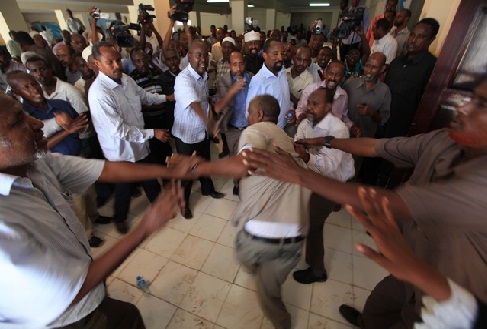
Members of the Somali parliament fight after majority voted against the Speaker of the Parliament Sharif Hassan Sheikh Aden (not pictured) in southern
For the second time in a week, Somali lawmakers traded punches on the floor of parliament amid a dispute over who holds the post of speaker.
Witnesses said lawmakers also wrestled and threw chairs at one another during Wednesday`s brawl in
Somali lawmakers first battled a week ago, after a group of them voted to remove Speaker Sharif Hassan Sheikh Adan from power. The speaker`s supporters said the vote was illegal, in part because it was held when he was out of the country.
The latest brawl happened when anti-Sharif Hassan lawmakers tried to set up a committee for electing a new speaker.
Somalia`s transitional government has been plagued by years of infighting that have held back efforts to stabilize the war-ravaged country.
The country has endured 20 years of lawlessness and conflict since the fall of the last stable government.
Punches fly in chaotic Somali parliament session
December 14, 2011
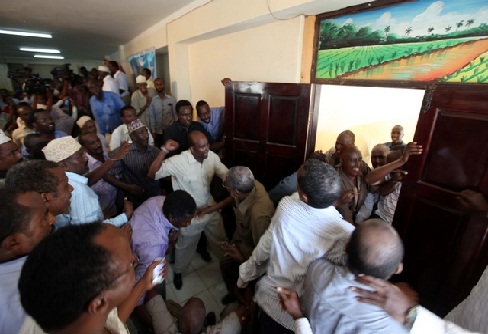
Members of the Somali parliament participate in a vote against the Speaker of the Parliament Sharif Hassan Sheikh Aden (not pictured) in southern
A rowdy parliament session in war-torn
Supporters of speaker Sharif Hassan Sheikh Adan, who was dismissed Tuesday by 280 MPs, loudly protested the election of his replacement, arguing that Adan`s impeachment did not follow procedure.
�Dozens of lawmakers loyal to the speaker rejected discussions to elect a replacement during today`s session. They started shouting, causing a mess that triggered fighting,� said legislator Mohamed Dhere.
�There was punching and kicking that left some lawmakers injured,� he added.
The MPs who sacked him were upset with Adan for not convening the 550-seat parliament for two months. His reasons for doing so remain unclear.
Fed up with the inaction, the lawmakers held a session on Tuesday without him and voted 280 to 3 to oust Adan from the speaker`s chair that he has held since last year after a political dispute forced his predecessor from office.
Adan, who has difficult ties with President Sharif Sheikh Ahmed, also held the speaker`s chair between 2004 and 2007.
His sacking remains controversial however because the Tuesday session during which he was fired was not convened by him or by one of his deputies authorised to convene the body.
�The move by the lawmakers who opened the session yesterday to impeach the speaker was a clear violation of the national charter because nobody has the right to open the parliament without the presence of the chairmen,� first deputy speaker Abdiweli Ibrahim Mudey told reporters.
�They opened the gates for fresh political row. We will be holding those responsible accountable when we re-open parliament,� he added, without giving a date.
Lawmaker Ibrahim Moalim said: �This was really disgusting. The pro-speaker legislators started the fight in order to disrupt the process to elect a new speaker. I`m telling you that this will not hinder our intention to bring changes to the parliament.�
Somalia`s transitional leadership has been plagued by wrangles that have undermined efforts to stabilise the war-wracked Horn of Africa country, and the latest parliament row is likely to cause more impediments.
The writ of the Somali transitional government will expire on August 2012 when elections are to be held under a new charter in accordance with a UN-backed deal signed by leaders in September.
� Copyright Agence France-Presse, 2011 All reproduction and presentation rights reserved.
Brawl in Somali parliament after PM survives vote
July 30, 2006
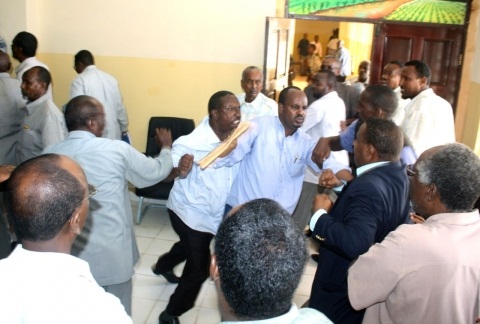
BAIDOA, Somalia, July 30 (Reuters) - Somalia`s Prime Minister Ali Mohamed Gedi survived a crucial no confidence motion in parliament on Sunday, sparking a brawl in the legislature which saw armed police enter to take control.
Legislators punched each other and wrestled on the ground in chaotic scenes witnessed by a Reuters correspondent after Gedi garnered 88 votes versus 126 for his opponents -- short of the two-thirds majority needed to censure him.
Defeat would have sparked the dissolution of the interim government`s executive, already in disarray over the threat from an Islamist movement that has taken the capital
Immediately after the vote result was formally announced, police came into parliament, which meets in a former grain warehouse, to pull lawmakers apart and escort Gedi out.
� 2006 Reuters Limited
Somali warlords want transitional president impeached
March 23, 2005
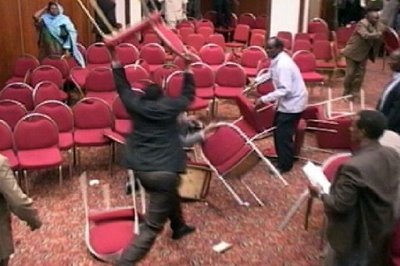
NAIROBI, March 23 (AFP) - The crisis over the relocation of Somalia`s transitional government deepened Wednesday as powerful warlords said they would move to impeach President Abdullahi Yusuf Ahmed.
Warlords controlling the bullet-scarred capital of
�A vote of no confidence on the president is coming ... there is enough evidence to impeach him,� said Somali construction minister and
�We are fed up with him,� he told AFP, maintaining that his faction had enough support in the 275-member clan-based Somali parliament to sack the president over plans for the government`s eventual move from exile in
Ato said pro-impeachment MPs were meeting in
Information Minister Mahmoud Jama decried the threat to impeach Yusuf, saying the warlords were bent on destabilizing the the government, which has been rocked by infighting in recent months.
�This is a propaganda move aimed at creating confusion,� he said.
The warlords have been piling pressure on Yusuf ever since he took office in October following a vote by the parliament.
Sources close to the warlords said they had decided to pursue impeachment now because of what they called Yusuf`s blatant violation of the transitional charter in planning for the government`s move to
Despite widespread opposition in
The dispute over the participation of
The second issue of contention is Yusuf and Gedi`s controversial plan to have the the government relocate to the towns of Jowhar and Baidoa instead of the capital
The warlords argue that both positions are illegal under the 2003 charter that says the presence of foreign troops in
The Horn of Africa country has been in chaos without any functioning central authority since the ouster of strongman Mohamed Siad Barre in 1991 turned the nation into a patchwork of fiefdoms ruled by warlords.
� Copyright Agence France-Presse, 2005 All reproduction and presentation rights reserved.
Somali lawmakers fight each other after voting to reject troops from neighboring countries
By RODRIQUE NGOWI
March 17, 2005
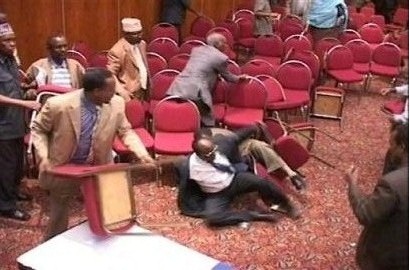
NAIROBI, Kenya (AP) - Somali lawmakers-in-exile fought each other with clubs, chairs and walking sticks Thursday after a hotly disputed vote rejecting the use of troops from neighboring countries in a force planned to secure a transitional government in Somalia.
Television footage showed Kenyan police intervening to stop the turmoil in the hotel where the lawmakers voted. Some legislators were later seen with blood oozing from their heads as police confiscated clubs.
Some of the lawmakers had reacted angrily to the speaker of parliament`s decision to allow lawmakers to vote by a show of hands instead of a secret ballot.
The contentious motion that was rejected would have allowed participation of troops from neighboring countries in a proposed regional peace support mission in
Somalia`s government and parliament are based in
Prime Minister Ali Mohamed Gedi denounced the vote as unconstitutional and accused powerful warlords-turned-Cabinet ministers and their allies of sabotaging efforts to restore order in
�Warlords who sabotaged previous attempts to bring peace in
Somali ministers, Islamic clerics, some residents and the U.S. State Department have warned that sending troops from neighboring countries would derail fragile efforts to end a 14-year civil war in the Horn of Africa nation, which has not had an effective central government since 1991.
Demonstrators and faction leaders in
Somalis also remember the war they lost in 1977 over control of Ethiopia`s southeastern Ogaden region, largely inhabited by ethnic Somalis. The Somali army never recovered from the defeat, a fact that eventually helped warlords to overthrow dictator Mohamed Siad Barre in 1991.
� 2005. The Associated Press. All Rights Reserved.
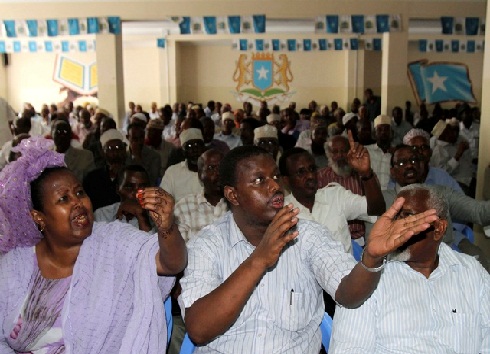
Members of parliament gesture during a voting process to approve a new cabinet for newly-appointed Prime Minister Mohamed Abdullahi Mohamed, in
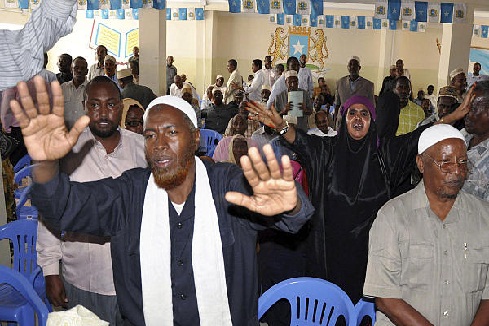
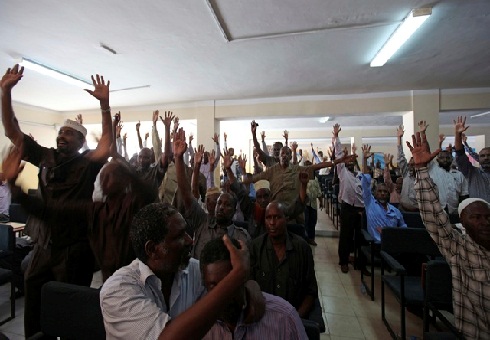
Members of the Somali parliament participate in a vote against the Speaker of the Parliament Sharif Hassan Sheikh Aden (not pictured) in southern
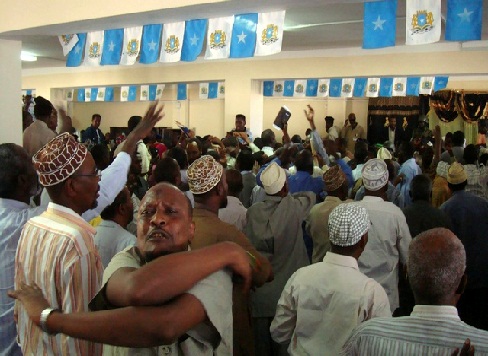
Somali lawmakers protest to refute the speaker`s mandate, which they say ended earlier this year, during this year`s first parliament session in southern Mogadishu May 16, 2010. REUTERS/Feisal Omar
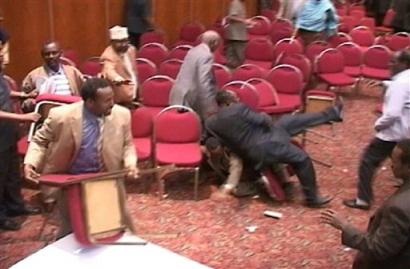
|
|
 Sawirro Somaliya  |

|
GOVERNANCE
The Scourge and Hope of Somalia A New Book By Ismail Ali Ismail  Which Way to the Sea, Please? By Nuraddin Farah Dhulkii Burcad-Badeedda .jpg) Budhcad Badeed Weli Qiil ma Leeyahay? 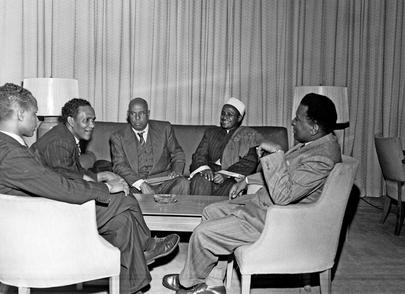 SYL LETTERS By A S Faamo |
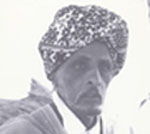 |
 |
© Copyright BiyoKulule Online All rights reserved�
Contact us [email protected] or [email protected] |

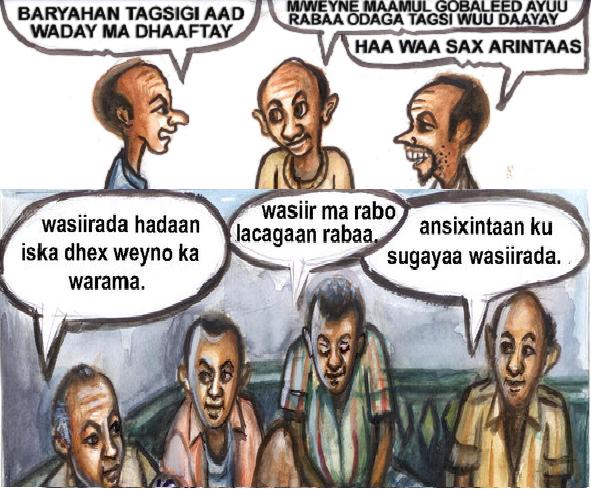
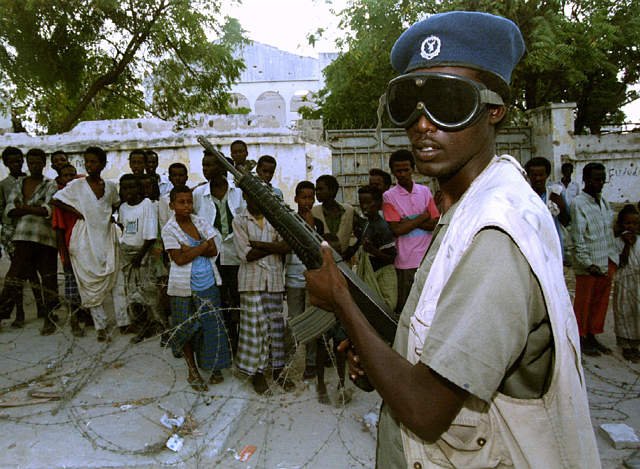


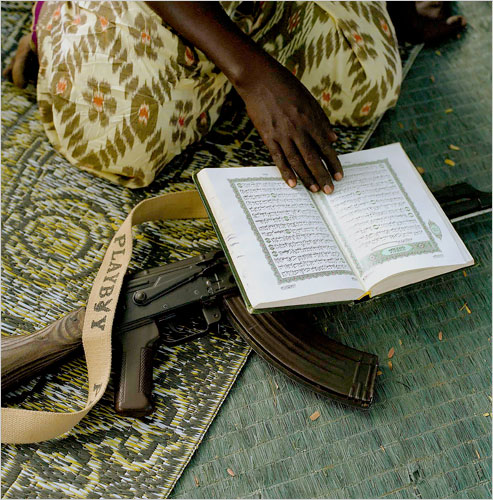

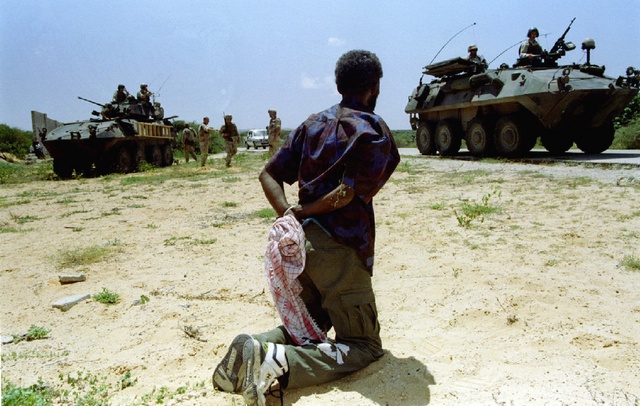
.jpg)




